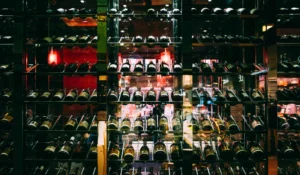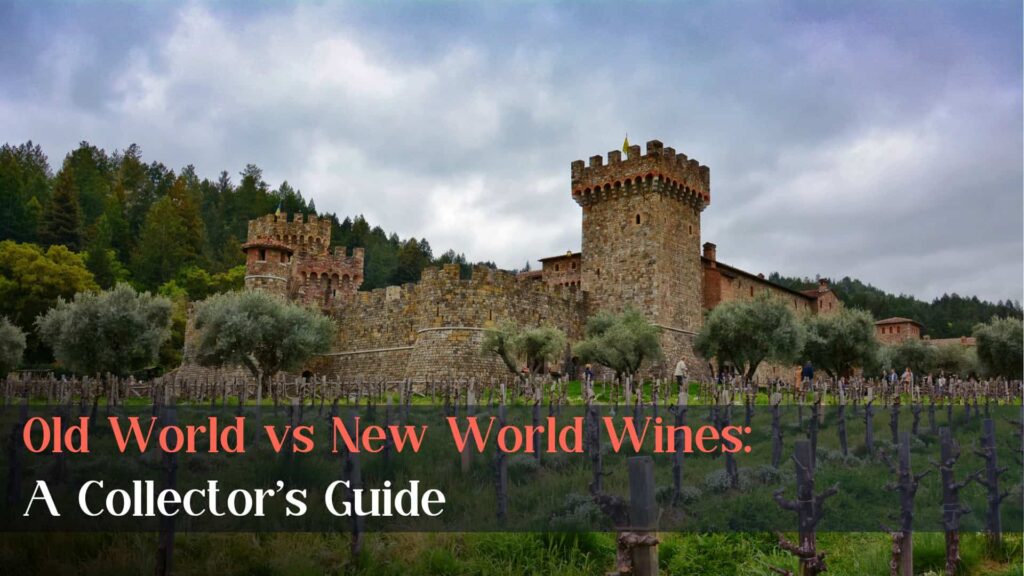The French region of Bordeaux has been synonymous with world-class wines for centuries. The rich history of winemaking in Bordeaux is inextricably linked to the role of négociants, who have played a crucial part in shaping the region’s wine industry. Négociants, derived from the French word “négocier” meaning “to trade,” are wine merchants who play a vital role in the production, distribution, and marketing of wines.
The négociant system has been instrumental in establishing Bordeaux as a global wine powerhouse, connecting wine producers with buyers worldwide. Négociants have not only facilitated the trade of wines but have also contributed to the development of wine classifications, quality control, and the overall growth of the industry.
While négociants have their roots in Bordeaux, their influence has since spread to other wine regions around the world. Today, négociants play a significant role in many wine-producing areas, adapting to local traditions and market demands while maintaining their core function of facilitating the wine trade. Read on to learn more!
Table of Contents
Toggle
The Origins of the Négociant System

The origins of the négociant system can be traced back to the early days of Bordeaux’s wine trade. In the 18th century, Bordeaux was already a thriving port city, with wine being one of its primary exports. However, the wine industry was fragmented, with numerous small wine producers scattered throughout the region.
Négociants emerged in the 18th century and acted as intermediaries between the wine producers and buyers, facilitating the sale and distribution of wines. They would purchase wines from various producers, blend them to create consistent and marketable products, and then sell them to buyers locally and internationally.
The négociant system provided several advantages for both wine producers and buyers. For producers, négociants offered a reliable outlet for their wines, allowing them to focus on viticulture and winemaking rather than worrying about sales and distribution. Négociants also provided financial stability by purchasing wines before bottling en primeur.
For buyers, négociants offered a more streamlined and efficient way to purchase Bordeaux wines. Instead of dealing with numerous small producers, buyers could work directly with négociants, who provided a wider variety of wines and ensured consistent quality. This was particularly important for international buyers, who relied on négociants to navigate the complex Bordeaux wine market.
As the wine trade expanded in the 18th and 19th centuries, the role of négociants became increasingly crucial. They played a key role in establishing Bordeaux’s reputation as a premier wine region and helped to create a thriving global market for Bordeaux wines.
The Rise of Négociants in the 19th Century
The 19th century saw a significant expansion of the Bordeaux wine industry, and négociants played a crucial role in this growth. As the demand for Bordeaux wines increased, both locally and internationally, these traders became key players in the production, classification, and distribution of these wines.
One of the most significant contributions of négociants during this period was their role in the classification of Bordeaux wines. In 1855, at the request of Emperor Napoleon III, a classification system was created for the wines of the Médoc region, which included some of the most famous châteaux in Bordeaux. Négociants were instrumental in establishing this classification, which ranked the châteaux based on the quality and price of their wines. This classification system, known as the Bordeaux Wine Official Classification of 1855, remains largely unchanged to this day and has become a benchmark for the quality of Bordeaux wines.

An illustration of the famous Chateau’s of Bordeaux from the 19th Century [Source]
Négociants also played a vital role in the global expansion of the Bordeaux wine trade during the 19th century. With their extensive networks and knowledge of international markets, négociants were able to introduce Bordeaux wines to new audiences around the world. They established trading relationships with importers and distributors in key markets such as the United Kingdom, the United States, and Asia, helping to create a global demand for Bordeaux wines.
As the wine industry grew, they also began to invest in their own wine estates and production facilities. This allowed them to have greater control over the quality of the wines they sold and to meet the increasing demand for Bordeaux wines. Some négociants even became winemakers themselves, creating their own brands and châteaux.
The rise of négociants in the 19th century was a pivotal moment in the history of Bordeaux wines. Their contributions to the classification, production, and global distribution of these wines helped to establish Bordeaux as one of the world’s premier wine regions, a reputation that endures to this day.
The Different Types of Négociants
The level of involvement in the winemaking process can vary significantly among different types of négociants. Some négociants purchase finished wines and focus primarily on bottling, labeling, and selling the wines, while others are more involved in the winemaking process itself. Regardless of their involvement, it’s due to these négociants we’re able to see such a wide variety of wine in stores across the world.
Standard Wine Négociants
The most common type of négociant is the standard wine négociant. These négociants buy finished wine in bulk and sell it wholesale. In this arrangement, the grower, vineyard, or winemaker handles the harvesting, crushing, pressing, fermentation, and clarification. The négociant’s role is primarily focused on packaging, marketing, and sales.
Négociant-Éleveur
A négociant-éleveur is a wine merchant and developer. These négociants acquire grapes or unfermented grape juice and handle the winemaking process from scratch. They have control over various aspects of the wine, such as tannin levels and alcohol content. Being a négociant-éleveur is considered the most challenging and prestigious type of négociants.
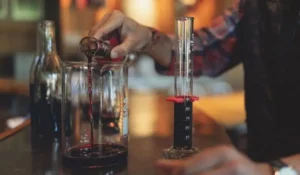
Négociants-Eleveur handle a great deal of the wine-making process including blending wines as shown above. [Source]
There is also a middle ground between standard négociants and négociant-éleveurs. These négociants take fermented or clarified wine and make minor improvements to it, but they do not handle the entire winemaking process like a true négociant-éleveur. However, this also carries the risk of potentially degrading the wine through processes like oxidation or bottle shock.
The distinction between négociant and négociant-éleveur has become somewhat blurred, as many claim éleveur status even if they make only minor changes to essentially finished wines. To ensure you are dealing with a quality wine négociant, it is essential to research their practices and not rely solely on labels. Investigate what they do to their wine and how they do it to make an informed decision.
Négociant Winery
A Négociant Winery is a type of négociant that not only purchases grapes or wines from growers but also owns its own vineyards and winemaking facilities. These négociants have greater control over the entire winemaking process, from grape growing to bottling and labeling.
Négociant Wineries differ from the traditional variety in that they are more vertically integrated, with involvement in both grape growing and winemaking. This allows them to have greater control over the quality of their wines and to produce wines that reflect their own unique style and vision. However, like traditional négociants, they also purchase grapes or wines from other growers to supplement their own production.
Understanding the different types of négociants and their roles in the wine industry is essential for appreciating the complex and diverse nature of wine production and trade. Whether in Bordeaux, Champagne, or other wine regions, négociants continue to play a vital role in bringing wines to market.
Well-Known Négociants
Throughout the history of the wine industry, several négociants have made significant contributions and have become well-known names in the world of wine. Here are a few notable examples:
CVBG

CVBG, or Compagnie des Vins de Bordeaux et de la Gironde, is one of the largest and most influential négociants in the Bordeaux region. Founded in 1949, CVBG has played a crucial role in the distribution and promotion of Bordeaux wines worldwide. The company works with a wide range of châteaux and wine producers, helping them to market and sell their wines to a global audience.
Maison Louis Jadot
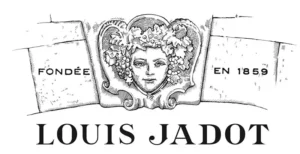
Founded in 1859, Maison Louis Jadot is one of the most renowned négociants in Burgundy. The company owns over 150 hectares of vineyards across the region and works with numerous growers to produce a wide range of high-quality wines. Maison Louis Jadot is known for its consistency and expertise in producing exceptional Burgundian wines.
Baron Philippe de Rothschild
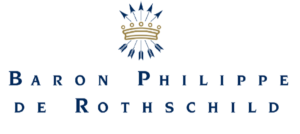
Baron Philippe de Rothschild is a name synonymous with excellence in the world of wine. While the Rothschild family is best known for its ownership of the prestigious Château Mouton Rothschild in Pauillac, Bordeaux, the company also operates as a négociant. Through its négociant arm, Baron Philippe de Rothschild works with a selected group of wine producers to create high-quality wines that reflect the company’s commitment to excellence.
The Modern-Day Role of Négociants
Négociants continue to play a significant role in the modern wine industry, particularly in the Bordeaux region. While the wine industry has evolved over time, the fundamental importance of négociants in connecting wine producers with buyers and facilitating the distribution of wines remains unchanged.
In today’s wine industry in Bordeaux, négociants work closely with châteaux and wine producers to purchase, blend, and distribute wines. They often have long-standing relationships with these producers, which allows them to secure a consistent supply of high-quality wines. They also typically maintain state of the art wine storage facilities, allowing them to hold on to wines for the long term as they rise in value, making them one of the go-to sources for older and rarer vintages. Négociant-sourced wines are often trusted to have well-documented provenance lowering the risk of counterfeit wines making it out in to the marketplace.
Négociants also play a crucial role in the En Primeur system, where wines are sold as futures before they are bottled. This system provides a valuable source of funding for châteaux and helps to establish market prices for the wines.
The advantages of working with négociants for wine producers and buyers
For wine producers, working with négociants offers several advantages. They provide a reliable sales channel, allowing producers to focus on viticulture and winemaking. They also offer financial stability by purchasing wines in advance, which helps producers manage cash flow and invest in their vineyards and facilities.

For buyers, négociants offer a convenient and efficient way to source wines from multiple producers. They provide a wide range of wines, ensuring consistent quality and offering guidance on the best wines to suit buyers’ needs. Négociants also handle the logistics of shipping and distribution, making it easier for buyers to access the wines they desire. This makes them important contacts for wine collectors and enthusiasts looking to expand their wine collections. If you’re looking to get started collecting wine check out our post below:
Related Post: How to Start a Wine Collection: Beyond the Basics
How GrtWines partners with Négociants for Wine Storage and Sourcing
GrtWines partners with reputable négociants to ensure the quality and provenance of its wines. By leveraging the expertise and resources of these négociants, GrtWines can source high-quality wines from the best châteaux and wine producers around the world, while also relying on the négociants’ state-of-the-art storage facilities to maintain the wines in optimal conditions. While we can make sure it stays in perfect condition until you redeem your wines, you’ll need to make sure it’s shipped properly and stored safely once it arrives. To learn more about how to ensure your wines maintain their quality check out our posts below:
Related Post: Wine Storage 101: Key Factors for Preservation
Related Post: Wine Shipping Essentials: Quality, Cost & Sustainability
This partnership ultimately benefits wine enthusiasts by providing access to a carefully curated selection of the finest wines from around the world sourced with perfect provenance. Check out the Grtwine’s marketplace to see some of the amazing wines we’ve sourced through our partnerships with the world’s most renowned négociants!

